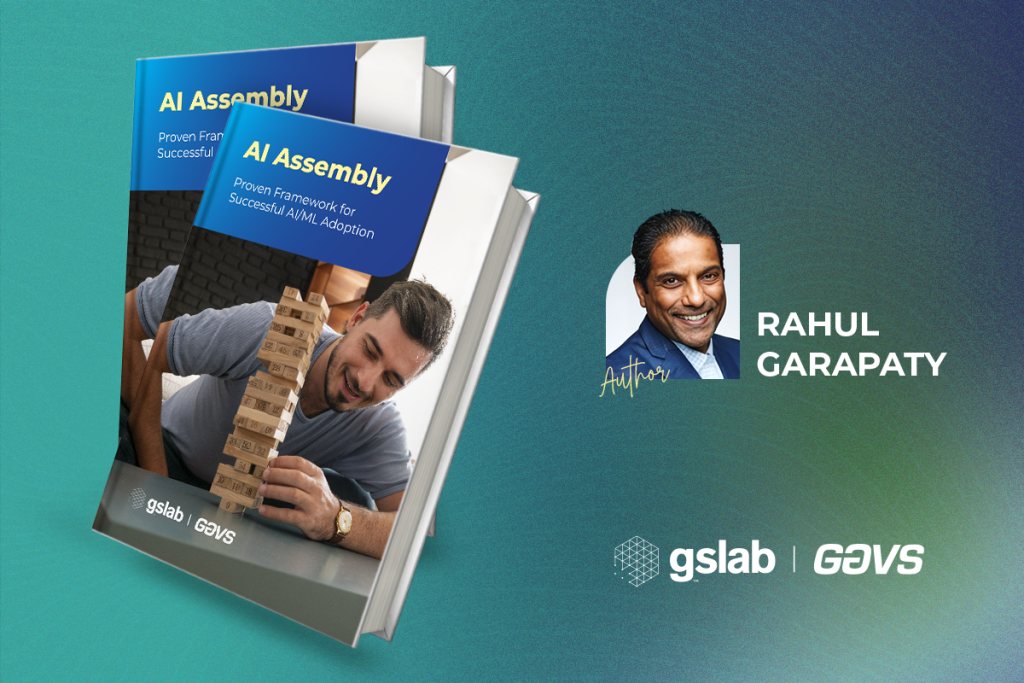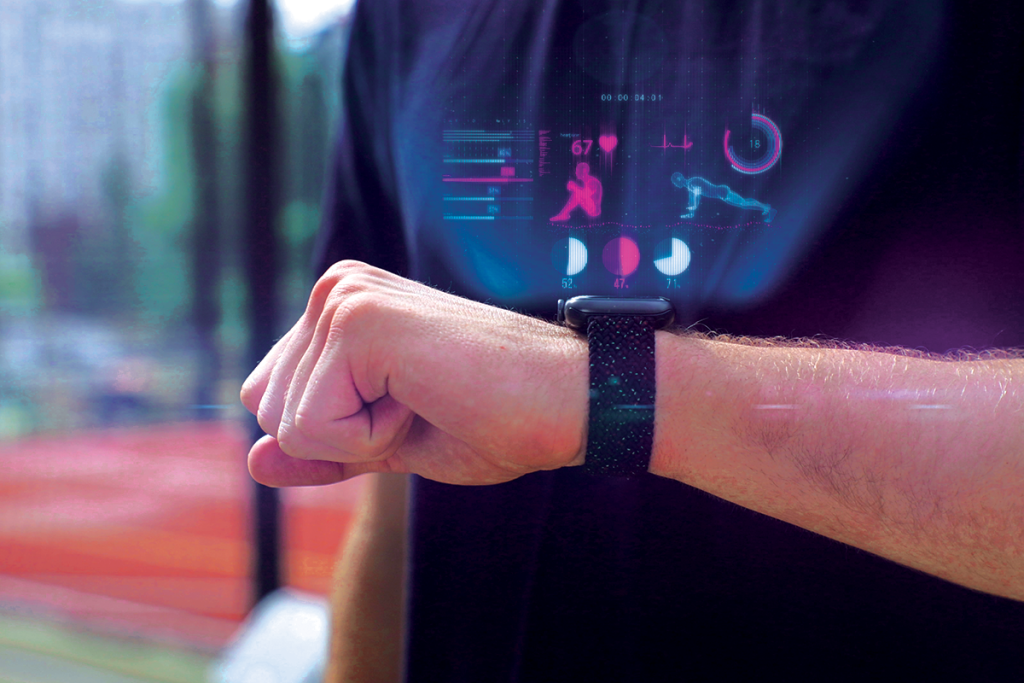How did you discover your passion for technology?
I enrolled in my first computer science class as a college freshman to avoid taking math. I liked the structure that I learned; I liked the way of thinking. But I never really touched computer systems again until Graduate School. I began to see information systems, not just programming or networks or storage, I just began to see the system as a powerful mechanism to augment what people were doing. It was a way to manage information as a resource. I began to see the power of the systems. So, I never really loved any one part of technology. I love the results that we get from systems.
Can you tell us something about the company you founded HealthCare Too?
I spent most of my corporate career as an IT executive, primarily in what we call healthcare – medical devices, diagnostics, pharmaceuticals. I decided I wanted to do something different that was more innovative and unbounded by corporate bureaucracy. Additionally, I had developed an expanded appreciation of what healthcare is.
In my personal journey, I found tremendous benefit in the practice of Tai Chi (taijiquan). That then prompted me to enroll for a master’s degree in Traditional Oriental Medicine. Unfortunately, I left the East Coast before I had a chance to finish but it really helped me understand a more holistic way of looking at health — not just treating the symptoms with pills and procedures and devices, but rather getting to the root cause. As humans, we need a more holistic approach – looking at nutrition, social relationships, spirituality, and lifestyle. Health was not merely the absence of disease but a fulfilling life.
This experience inspired the logo for Healthcare Too, a three-legged stool. It’s about the body, mind, and spirit. A holistic approach to healthcare that embraces the whole person. Like any startup, we went through a couple of different phases in Healthcare Too. First, we provided cloud hosting for HIPAA compliance for all healthcare providers, conventional and complementary. The market opportunity was not what we expected so we pivoted to helping consumers directly by providing information and products that would aid an expanded understanding of health.
That was the original journey for Healthcare Too. I continue to work on that but less now that I’m working at the Bank. But part of what makes Healthcare Too important to me is why I’m at the Bank… producing funds for agriculture so that people can get real food. I found this phrase recently, “Pay the Farmer now, or pay the Pharma later.” I’m very happy in what we do at Healthcare Too and I’m able to channel that same passion through my work at AgFirst.
How would you describe an ideal technology partner to a healthcare provider?
The ideal technology partner is someone who looks at what we in the West are now starting to call Social Determinants of Health. What I find amazing is that your zip code has more bearing on your health than your genes! The ideal technology partner should be one who will appreciate the whole person. Health is about daily activities. Health is lifestyle. Food is medicine.
Let’s take diet as an example. Poor nutrition leads to so many chronic diseases (e.g., Type II Diabetes, Cardiovascular Disease, etc.) These are chronic… not cured by pills.
Telling someone to eat better is almost useless. Telling someone to eat fewer calories is less than useless. Telling someone that they need to eat more whole foods is a little better.
Understanding why a person eats the way they do is valuable. Understanding why a person has been challenged to change is critical. Showing a person or enabling a person to make that change is transformative. Inspiring someone to continue a healthy and nutritious diet is healthcare.
Healthcare professionals aren’t trained or paid to appreciate what people have to do in order to prepare that food. Too many people do not know how to prepare food properly, or how to share food with others in their neighborhood and build bonds and relationships. The current US sick care model will never fix that.
Very simply, a good technology partner would start to look at this journey. What can we do to put a slow cooker in someone’s house, get them an Amazon drop of some food, show them some videos so that they can cook it well. Don’t just give them an app – “yeah, I answered my questions for the day” and nothing else happens. Make it part of their day. The right technology company would be able to see all those opportunities, and then present it in an easy-to-use, very cost-effective manner to people. The market opportunities are boundless with a holistic definition of health.
How would you envision an ideal healthcare ecosystem?
Staying with the diet example, the ideal healthcare system would take what we have today and expand it. For example, you can get a medication in the US easily, either at the local pharmacy, or you can have them delivered to you and so on. But we don’t do that same thing with food. Why can’t a physician who’s looking at you, and knows you should be eating less processed food, write you a prescription for the type of food you should be eating.
A prescription for food from a local farmer’s market or food delivery service. We have many channels to supply medicine. However, the channels have been built so that you can only get a pill or procedure even if it’s cheaper and far more effective to give you a prescription for food.
This is not just about food. The same model can be expanded to help with other Social Determinants of Health: a script for a visit to a local park or art museum along with (or instead of) anxiety medication, a procedure for learning mindfulness techniques that someone can incorporate into a lifelong journey instead of a surgical procedure, and so many others.
The one that really has my eye right now, like everybody else on the planet, is Artificial Intelligence – Generative AI. We’ve been playing with it at Healthcare Too. ChatGPT, for example, is a great technology, has a lot of potential. But I’m seeing other “feeder” applications. Recently, I was introduced to Agent GPT. The agent converts your prompt into a series of structured prompts and relays them to ChatGPT for you. You’re able to get a very complete answer based on a series of prompts after asking only the initial prompt. It has a much more complete answer than I would have done on my own.
If AI is limited to doing the same things in sick care but more quickly / cheaply, we get more sick care more quickly. This is not something we need or want. We need to explore AI as an enabler for real health- care for the whole person.
How has the healthcare industry changed in the past few years, post covid?
I haven’t seen much change. What I have seen is even more of the same: Oh, you’ve gotten overweight, especially from sitting around the house during COVID? Here, we have a whole bunch of pills you can take! Instead of, “Here’s the proper way that you should be eating. Here’s ways to do it. Here’s a way that you can get moderate exercise without trying to run a marathon.”
It would make more sense for true healthcare to pay $1000 for someone to get an elliptical machine that they can use in their house or apartment to stay healthy than to pay $10,000 for procedures and pills for diabetes. Why not pay $100 for an hour massage that helps a person relax instead of $100,000 for a heart attack? Unfortunately, what we call healthcare, especially in the US, is not healthcare– it’s sick care. You can’t even use it if you’re healthy. It is time that we look at other cultures and other practices that serve and elevate the whole person. I’m very proud of the work I did in pharmaceuticals and medical devices and such.
There is a place and time for their use and always will be. However, we also need to look at Traditional Chinese Medicine, Ayurveda, basic nutrition, regular exercise, mindfulness practices, stress reduction techniques, methods to manage finances, channels to meet people and share virtual experience (like making and enjoying dinner, not posting more selfies). There are a number of things we could be doing, but we’re not. So no, healthcare hasn’t changed.
What are your thoughts on telemedicine and the potential of VR and AI in healthcare/sick-care industry?
I think telemedicine offers so much. As the US population gets older, it gets more difficult for them to make a trip to the doctor’s office. Also, since we have a sick-care system, doctors’ offices are littered with germs which isn’t great for the elderly. There are challenges if someone needs to check the vitals of the patients, but telemedicine holds so much potential. This is especially true if we move to that more holistic, real healthcare approach.
As for AR and VR, if it’s the sick care industry it’ll be it’ll be another channel for more of the same. In some of my past companies, they would use it to help physicians understand what a mental health patient experiences during a visit or bus ride. It’s good as a training tool, not just for physicians but also maybe patients. But it can be more when seen in a larger holistic healthcare picture.
Five years ago, there was a Pokémon game with augmented reality. Well, everyone was out walking more. For that one summer it was amazing how many people were going out and sharing with others where to find the best Pokémon.
I think that there are many opportunities for augmented reality and virtual reality if we’re looking at health holistically.
What are your thoughts on the challenges of interoperability between healthcare systems and EHRs?
The FHIR standard has been around forever. In my honest opinion, I don’t think the right people in sick care want to interoperate. I can make a micro transaction today that shows up my credit card within two minutes. I order something online and as soon as it hits my credit card, I get an alert on my phone. Are you trying to tell me that with that $4.3 trillion that the US spends on healthcare (plus billions more out-of-pocket and complementary medicine) that kind of industry can’t find a way to interoperate? No, that’s not the problem. The major EHRs don’t want to play together. The major systems don’t want to play together. They want that fragmentation.

Author
Tim Perry
Tim Perry, MPA, MS, CPHIMS, CISSP is the Co-Founder & Chief Information Officer of Consumer Health platform HealthCare Too. Over the past 3 decades, Tim has worked in Fortune 50 executive leadership roles as well as startups and has developed a deep passion for transforming healthcare. He is blessed with a wonderful wife and two inspiring children. Tim has practiced Tai Chi (Taiji Chuan) for over 20 years and enjoys cooking wholesome (and easy) meals.




